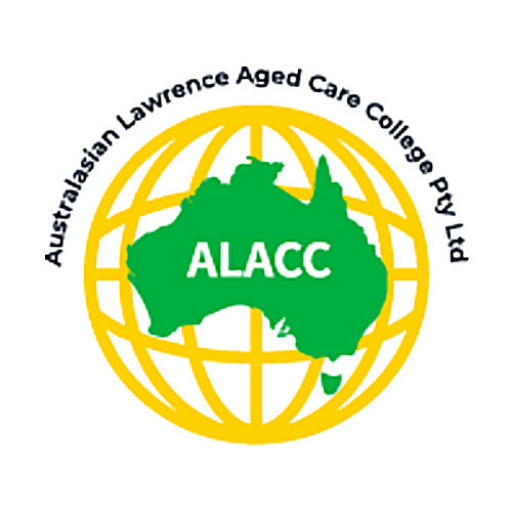Photos of university / #ucl
The MSc in Cognitive Behavioural Therapy for Psychosis at University College London offers a comprehensive training program designed for mental health practitioners seeking to specialize in the application of cognitive behavioural therapy (CBT) techniques for individuals experiencing psychosis. This postgraduate qualification combines theoretical knowledge with practical skills, enabling students to effectively assess, plan, and deliver evidence-based interventions tailored to the needs of clients with psychotic disorders. Throughout the course, students will explore in-depth topics such as the underlying mechanisms of psychosis, assessment strategies, and therapeutic approaches rooted in CBT principles, including techniques for managing hallucinations, delusions, and other psychotic symptoms. The program emphasizes a patient-centered approach, fostering critical thinking and clinical reasoning, with a strong focus on ethical practice and cultural competence. Delivered through a blend of lectures, seminars, practical workshops, and supervised clinical placements, this program ensures that graduates gain hands-on experience and confidence in applying CBT in diverse settings. The curriculum is regularly updated to reflect the latest research findings and clinical guidelines, preparing students to contribute effectively to mental health services. Upon successful completion, graduates will receive a master's degree qualifying them to work as accredited CBT therapists specializing in psychosis within NHS and other mental health organizations across the UK. This program is suitable for mental health professionals such as clinical psychologists, nurses, social workers, and psychiatrists eager to enhance their therapeutic skills with a focus on psychosis. Engaging with a vibrant academic community and benefitting from expert faculty, students will develop the competencies necessary for advanced clinical practice and research in this specialized area. Ultimately, the MSc in Cognitive Behavioural Therapy for Psychosis aims to improve clinical outcomes for individuals experiencing psychosis through high-quality training and professional development.
The programme will develop participants’ skills in CBT for anxiety and depression, and the application of these skills to individuals with psychotic symptoms.
Students undertake modules to the value of 120 credits.
The programme consists of six core modules.
Core modules
- CBT for Anxiety - advanced (15 credits)
- CBT for Depression (behavioural activation) (15 credits)
- CBTp Intervention (30 credits)
- CBT for Psychosis (fundamentals) (15 credits)
- Clinical Portfolio (15 credits)
- Fundamentals of CBT (30 credits)
Teaching and learning
The programme is delivered through a combination of didactic teaching, self-directed study and supervised clinical practice. Assessment is through coursework, reports of clinical practice and the presentation of a clinical portfolio.
Participants will be mental health staff with a prior professional qualification (for example, in nursing or counselling) working in clinical services for people with psychosis.
The MSc in Cognitive Behavioural Therapy for Psychosis at University College London offers a range of funding opportunities for prospective students. As a prestigious institution, UCL provides various scholarships, bursaries, and financial aid options to support students throughout their studies. Applicants are encouraged to explore the university’s central scholarships webpage, which details funding opportunities based on academic merit, financial need, and specific eligibility criteria such as nationality or subject of study.
Students may also be eligible for UK government funding schemes, including loan options for postgraduate study, such as the Postgraduate Master's Loan, which can provide up to £11,836 (amounts may vary annually) to cover tuition fees and living costs. International students might explore scholarships specific to their home country or those offered via bilateral agreements. UCL also works with external funding bodies, charities, and professional associations that offer grants for candidates pursuing clinical psychology and mental health specialties, including CBT for psychosis.
In addition, the programme’s affiliation with NHS trusts and healthcare organizations may permit students to access employment-based funding or bursaries. Some students also consider part-time work or research assistantship positions related to their field of study, which can provide both financial support and valuable professional experience. It is recommended that applicants thoroughly review the UCL Funding and Scholarships webpage and consult the university’s financial aid office during the application process to identify the most suitable funding options.
Financial planning should also include considering associated costs such as accommodation, travel, and insurance, which students should budget for accordingly. Overall, while specific scholarships for this programme are limited, students have multiple avenues to secure financial aid that can facilitate their postgraduate education at UCL, helping to reduce financial barriers and support their career development in clinical mental health practice.
The MSc in Cognitive Behavioural Therapy for Psychosis at University College London (UCL) is a specialized postgraduate program designed to equip students with the theoretical knowledge and practical skills necessary to deliver effective CBT interventions to individuals experiencing psychosis. This program is aimed at mental health professionals, including clinical psychologists, psychiatrists, mental health nurses, and other qualified practitioners, who are seeking to enhance their expertise in psychosis treatment through evidence-based psychological therapies.
The course content encompasses core modules in cognitive and behavioural theories of psychosis, assessment and formulation techniques, and therapeutic interventions tailored specifically for psychotic symptoms. Students will learn about the latest research developments in the field, including models of understanding psychosis, relapse prevention strategies, and management of comorbid conditions such as anxiety and depression in psychosis. The curriculum emphasizes a strong clinical focus, with opportunities for supervised practice and real-world application of skills in diverse healthcare settings.
Teaching methods include lectures, seminars, case discussions, role-plays, and practical placements, fostering an active learning environment. The program encourages critical thinking and reflective practice, supporting students in developing a nuanced understanding of different client needs and cultural considerations. Assessments typically involve a combination of written assignments, clinical case reports, and practical examinations, ensuring students can demonstrate their competence in both theoretical and applied aspects.
Graduates of the program will be prepared to work as qualified CBT therapists for psychosis within NHS services, private practice, or research settings. They will also be eligible for further postgraduate training and professional accreditation in psychological therapies, subject to relevant accreditation body requirements. The program is part of UCL's commitment to advancing mental health treatments through rigorous academic training and clinical excellence.
The program duration is usually one year of full-time study or part-time options, depending on the student’s commitments. Entry requirements include a relevant professional qualification or degree, such as psychology, psychiatry, nursing, or social work, along with relevant clinical experience. UCL provides comprehensive support and resources, including access to research libraries, supervision, and workshops aimed at skill development and professional growth.
This MSc in CBT for Psychosis reflects UCL’s reputation as a leader in mental health research and clinical training, offering a curriculum grounded in the latest scientific evidence and best practices worldwide. Graduates are equipped not only with advanced therapeutic skills but also with a critical understanding of psychosis within the broader context of mental health care policies and interventions, positioning them as innovative practitioners in their field.








